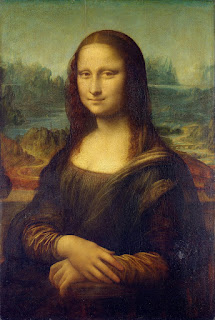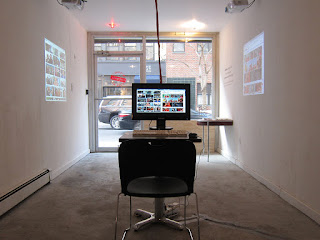Ways of Seeing
I thought it was interesting how John Berger pointed out
that before the camera was invented, you could only see pieces of art in one
place and one time. People travelled all over the world to see famous art
works, such as the Mona Lisa. Now with the invention of the camera, anyone
could look up the image and see it in seconds. They can see it on their phone,
iPad, and laptop while being in their home environment. They don’t have to
travel to the place where the actual artwork is currently displayed. It makes
me think of how we take for granted this opportunity to see any piece of
artwork within seconds, where as in later times people travelled to the photo.
Berger also stated that everything in the environment around
the image plays a huge role in its meaning. He used the example of the icon to
describe this. Before cameras, the icon was only located in a church. Behind
its image is God and people didn’t need to look at it to understand its
meaning. Now, the icon image travels to people in their homes, which change the
meaning of the icon. It is no longer just in a church where people go and pray,
but in homes by walls and windows. This makes me think if our perception of
images are different since we lose meaning from seeing images in our home and
not in the place where they are actually displayed.
Making these insights about artwork, I believe that people
probably had a greater appreciation for the piece of art because of the journey
they had to take to get there and the true meaning of the image that is
supported by the environment around it. I think the fact that we can look up pieces
of work anytime and anywhere and see it within our own environment takes away
the true purpose or intent of the painting. If we still had to travel
to see images and be in the exact room where it is displayed and see the original size and frame that the picture is in, I believe that we would have
different opinions about it than we do now. These are aspects that I will take into consideration when
looking at pieces of artwork.



Comments
Post a Comment